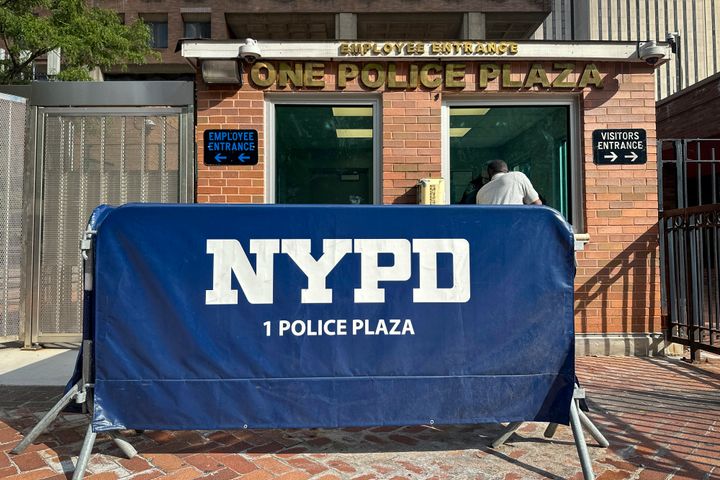
The New York City Police Department failed to discipline officers for violating the rights of citizens during controversial “stop-and-frisk” encounters, according to a review ordered by a federal judge.
While the city’s police department has made efforts to investigate internal officer misconduct, it has failed to discipline officers found liable in violating people’s civil rights, the report said.
Stop and frisks are when police briefly detain and search citizens without probable cause. The policing policy was found unconstitutional during a 2013 federal trial after evidence found Black and Hispanic people were the most frequent targets of the practice.
The 503-page report, meant to provide oversight on NYPD’s compliance with the law, was written by James Yates, a retired New York State judge, and filed to a court docket on Monday by federal judge Analisa Torres.
The department saw a 61% increase in street stops in 2022, with only 2% of them leading to arrests. The report provided 51 recommendations for the NYPD to resolve the areas where it falls short in disciplining officers.
The NYPD did not immediately respond to requests for comment.
The report said officers often received “informal discipline” for stop and frisks, which occurs inside of a police department’s precinct, as opposed to formal disciplinary procedures that would routinely involve an internal trial process detailing the allegations of misconduct against the officer, the report said.
“Discipline for illegal stops and frisks, even when substantiated by [the Civilian Complaint Review Board], is not pursued with the same vigor and resolve as for other misconduct. Penalties for wrongdoing involving stops, questions, frisks, or searches of persons….even when repeated are rare,” the report said.
Officers who perform an improper stop are supposed to be punished with a three-day penalty or reprimand, but the report found the penalty was not enforced. Instead, officers were given recommendations of training, which they underwent if they had previously been found to have made improper stops.
There were also an “inordinate number” of cases dropped by the police commissioner from 2022 to 2023 due to a statute of limitations, which the report said could be due to a multitude of reasons. However, it was “unfortunate that those cases were dropped without further corrective action,” the report noted.
The time frame includes the tenure of Police Commissioner Edward Caban, who was appointed by Mayor Eric Adams but ultimately resigned this month amid federal corruption allegations. A week after Caban’s successor, interim Police Commissioner Tom Donlon, was appointed, federal investigators executed a search warrant on several of his homes. Several others in Adams’ close circle had resigned prior to Caban.
“There are some cases where penalties for stop/frisk misconduct is ordered, but almost always for an encounter where other misconduct was found as well—commonly excessive force, discourtesy, offensive language, disregard of the Right to Know Act, or failure to file required documentation,” the report states. “In that event, the officer may then receive discipline by way of penalty days for the entirety of the misconduct. Penalties for Fourth Amendment violations alone are the exception.”
Disclaimer: The copyright of this article belongs to the original author. Reposting this article is solely for the purpose of information dissemination and does not constitute any investment advice. If there is any infringement, please contact us immediately. We will make corrections or deletions as necessary. Thank you.
